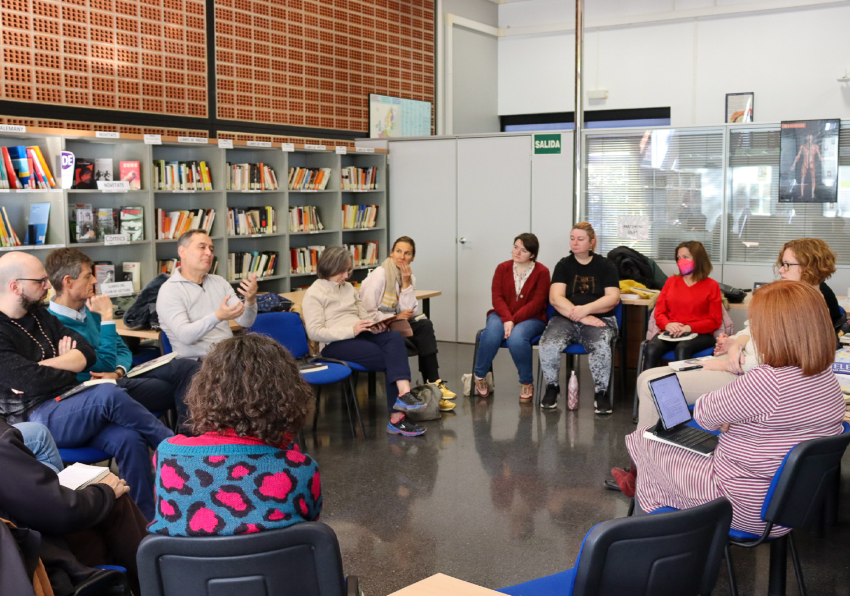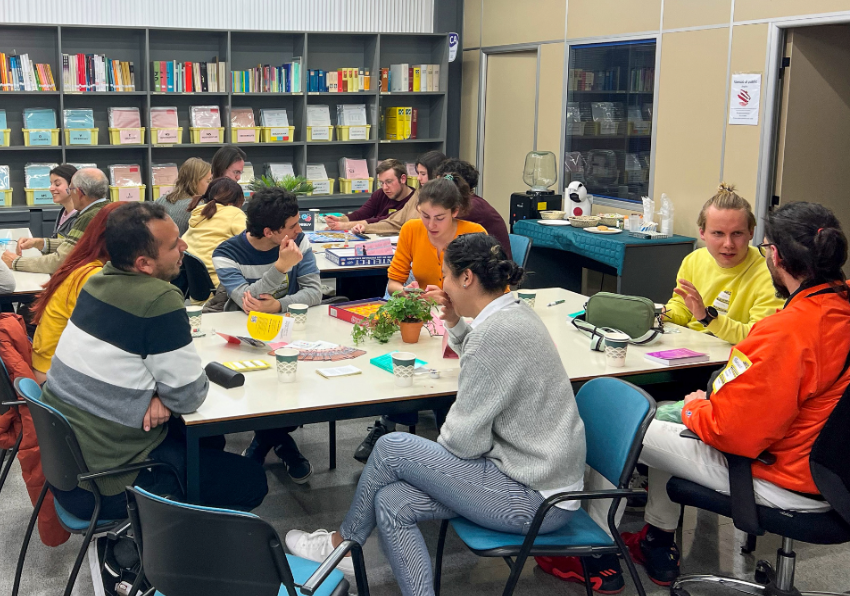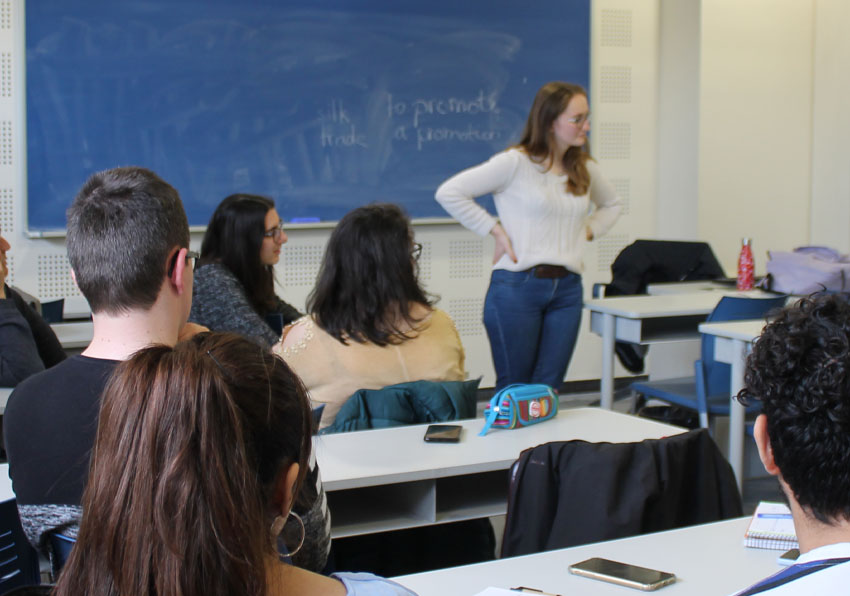Master's Degree in Research in Specific Didactics
Admission criteria
The Committee of Academic Coordination of the Master's:
-It will take into account the provisions of the Article 17 of the Royal Decree 1393/2007. Particularly, in the case of applicants with specific educational necessities derived from disabilities, the Committee of Academic Coordination will collect the appropiate support and advice of the corresponding services of the University of Valencia, which will assess the necessity of posible curricular modifications, itineraries or alternative studies.
-It will take into account the current regulations of the University of Valencia, as the procedures and requirements of admission stated by this one and by the Curriculum of the Master's, among which may include requirements of previous specific training in some disciplines.
-It will assess the merits of each applicant based on the following criteria, making personal interviews and/or the tests that it deems advisable to assess and prioritize, if it is necessary, the applications.
Depending on the situation of each student applicant, the Committee of Academic Coordination of the Master's Degree in Research in Specific Didactics will apply the following criteria:
General criteria for admission to the Master's:1. All applicants should certified, for any of the applicable procedures, knowledge of reading comprehension of English language equivalent to level B1.
Specific criteria for admission to the Master's:
1. The accreditation of holding the title of the Master's Degree in Secondary Education Teaching of the University of Valencia, the certificate of the Curso de Aptitud Pedagógica (CAP) (Course on Pedagogical Aptitude) or other equivalent title will be enough to take the itinerary of Specific Didactics corresponding the speciality studied in this title.
2. The accreditation of holding the degree titlle or equivalent in any of the specialities recognised by the Royal Decree for Specialities for teachers of Secondary Education and Bachillerato (Spanish upper secondary school education) (R.D. 1834/2008) it will be enough for taking the course of Specific Didactics belonging to the speciality studied in this title. This degree's titles are the following; Fine Arts, Biology, Physical Activities and Sport Sciences (or INEF/IVEF), Life Sciences and Environment, Advanced Music Conservatory, Statistics, Pharmacy, Philology, Physics, Geography, History, Engineering (Agricultural, Industrial, etc.) Mathematics, Medicine, Chemistry, Veterinary or equivalent.
3a. The applicants who certified that they are diploma holdersor graduates in Degree in Preschool Education could be admitted in the specialities of Teaching of Music, Teaching of Visual Arts and Language and Literature.
3b. The applicants who certified that they are diploma holders or graduates in Education could be admitted if they accredited that they have studied an itinerary of specialisation related with the speciality of the Master's chosen, among the defined in the curriculum of the Degree in Primary School Education, or other equivalent training. The current itineraries are:
-Specialization in Arts and Humanities. Givecess to specialities of Teaching of Visual Arts and Teaching of Social Sciences.
-Specialization in Sciences and Mathematics. Gives access to the specialites of Teaching of Mathematics and Teaching of Experimental Sciences. -Specialization in Music Education. Gives access to the speciality Teaching of Music.
-Specialization in Science and Mathematics. Gives access to the specialties of Teaching of Mathematics and Teaching of Experimental Sciences.
-Specialization in Musical Education. Gives access to the specialtiy of Teaching of Music.
Specialization in Physical Education. Gives access to the specialtiy of Teaching of Physical Education.
-Specialization in Foreign Language. Gives access to the speciality of Teaching of Language and Literature.
4. The applicants who certified their graduation in Education, Sciences of Education or Psychology or the Diploma in Education could be admitted if they accredited having studied previous to the Master’s studies equivalent to a minimum of 18 credits of contents of some degrees indicated in point 2 related with the chosen speciality.
5. The applicants who certified their graduation or equivalent in different degrees of the mentioned in points 2, 3a, 3b and 4 could be admitted if , in addition to the degree, they accredit officially to possess teaching experience of 3 years at least in subjects related with the chosen speciality in centres of primary or secondary regulated education.
6. The applicants graduated in Music by the Conservatorio Superior de Música (Advanced Conservatory of Music) or Dance by Escuela Superior de Danza (Advanced School of Dance), should accredit to possess the Advanced Degree, in any speciality.
7. When applicants certified having a diploma, degree or equivalent not mentioned in the above sections 1 to 6 and meet the requirements of access to the University of Valencia (see section 4.2.1), the Committee of Academic Coordination of the Master’s will study individually the application and will assess the necessity to demonstrate teaching experience and/or disciplinary training previous to the admission to the Master’s.
8. When applicants accredited holding university’s degree issued in countries outside the European Higher Education Area and to have passed the admission procedure to the Master’s. It will be studied individually the applications and will assess the necessity to demonstrate teaching experience and/or disciplinary training previous to the admission of the Master’s.
The Committee of Academic Coordination of the Master’s could indicate to each applicant who doesn’t meet any of these requirements the minimum studies that they should take.
Student Selection
The selection of students will be made from the applications that meet the requirements mentioned in sections 4.2.1 and 4.2.2. In case that the demand of a speciality exceeds the placements offered will be prioritized the applications using the following criteria, in order of highest to lowest ratings of importance and always referred to the speciality:
a)General Criteria:
1. Certification of Master’s Degree in Secondary Education Teaching , Certificado de Aptitud Pedagógica (CAP) (Course on Pedagogical Aptitude)or other equivalent qualification.
2. Qualification and academic record.
3. Professional experience as a teacher in regulated centres of primary, secondary or university education.
4. Research experience and publications.
5. Additional knowledge of English or other languages.
6. Participation in courses, seminars, conferences, etc.
7. Personal interview.
8. Argued manifestation of interest.
b) Specific Criteria:If the Committee of Academic Coordination deems it appropriate, will propose level tests to applicants in those formational aspects which suppose a prerequisite in this Master’s. The applicants must pass the minimum level required by the committee in these tests. The results of these tests will be assessed for the selection of students.
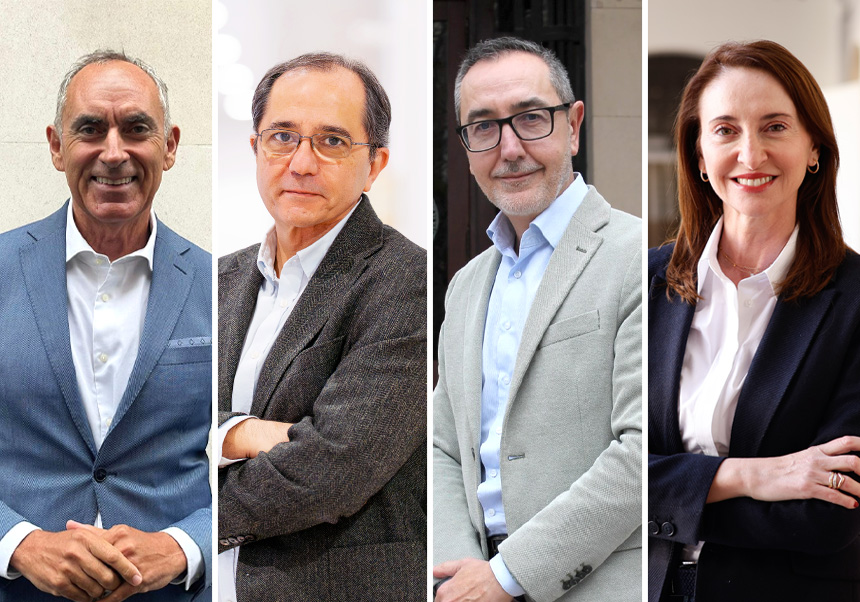

















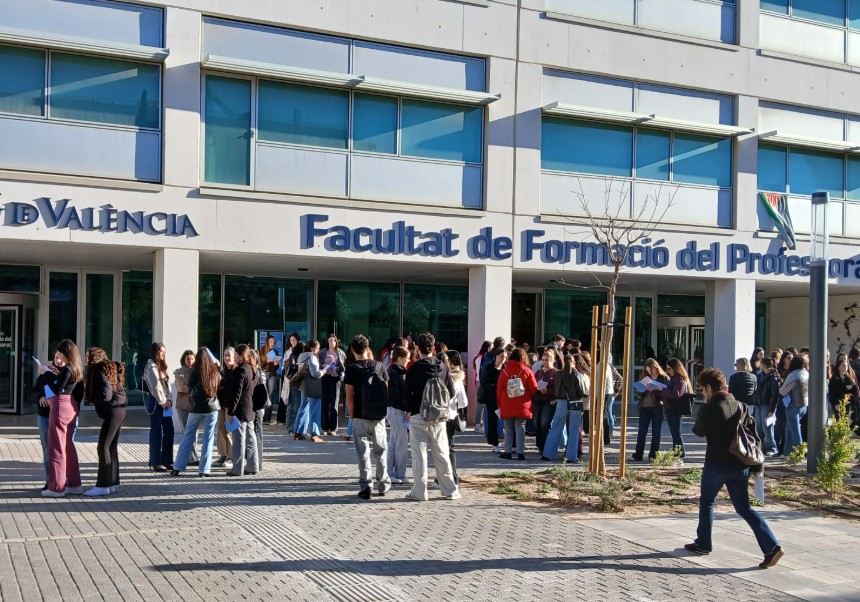
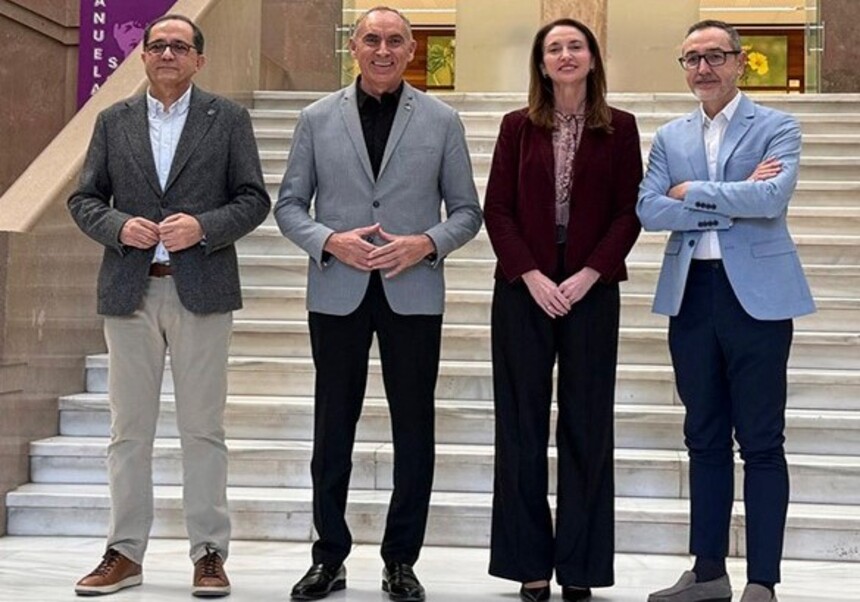





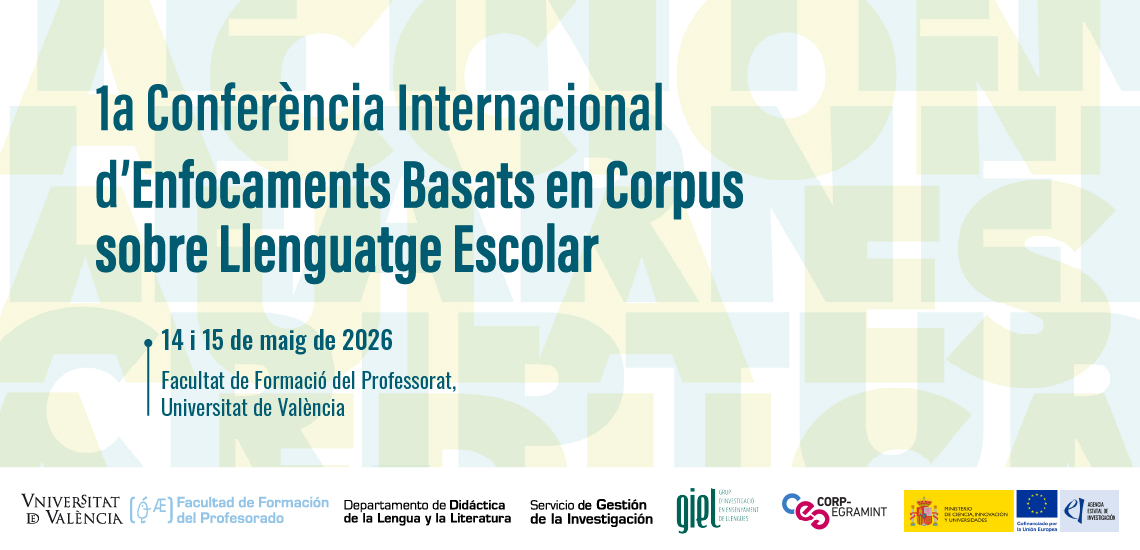






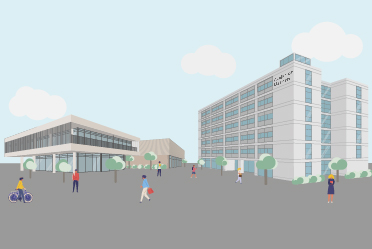

 This Master's provide advanced research training in the specializations of Teaching of Visual Arts, Teaching of C.C Experimental, Teaching of the CC. Socials, Teaching of Physical Education, Teachning of Language and Literature, Teaching of Mathematics, and Teaching of Music. For this, the Master's has the participation of teaching staff recognised by their long research careers and their international prestige.
The Master's is preferably aimed to: i) Teachers of non-university educational levels who wish to complete their training by acquiring researching competences, which allow them to perform innovative or researching educational actions for improving their teaching practice. ii) University graduates who wish to start or continue their university academic career in the areas of knowledge or departments related with the specialities of the Master's.
After completing succesfully the Master's, you will have the knowledge and tools of research level to be able to acces to the Doctorate of Specific Didactics of the University of Valencia or equivalent doctorates of other universities.
This master is located in the Faculty of Teacher Training of the University of Valencia and his teaching is taught in classrooms of this faculty.
This Master's provide advanced research training in the specializations of Teaching of Visual Arts, Teaching of C.C Experimental, Teaching of the CC. Socials, Teaching of Physical Education, Teachning of Language and Literature, Teaching of Mathematics, and Teaching of Music. For this, the Master's has the participation of teaching staff recognised by their long research careers and their international prestige.
The Master's is preferably aimed to: i) Teachers of non-university educational levels who wish to complete their training by acquiring researching competences, which allow them to perform innovative or researching educational actions for improving their teaching practice. ii) University graduates who wish to start or continue their university academic career in the areas of knowledge or departments related with the specialities of the Master's.
After completing succesfully the Master's, you will have the knowledge and tools of research level to be able to acces to the Doctorate of Specific Didactics of the University of Valencia or equivalent doctorates of other universities.
This master is located in the Faculty of Teacher Training of the University of Valencia and his teaching is taught in classrooms of this faculty.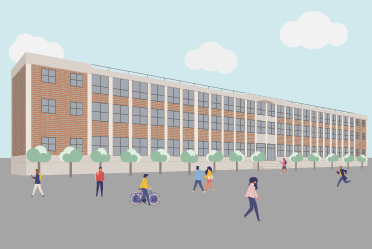 The Master's in Secondary Education Teacher Training provides a professional qualification for teaching in both public and private schools, in the upper and lower secondary education cycles, vocational studies and language teaching. It is structured into these specialities: Biology and Geology; Drawing; Economics; Physical education; Philosophy; Physics and Chemistry; Foreign language: German, French, English, Italian and Portuguese; Geography and History; Classical languages and cultures: Greek and Latin; Spanish language and literature; Catalan (Valencian) language and literature; Mathematics; Music; Counselling; Technology and industrial processes; Career guidance; Vocational education specialities: Health; Social, cultural and community services; Business, Trade and Tourism; Computer Science and Electronic Systems.
The Master's in Secondary Education Teacher Training provides a professional qualification for teaching in both public and private schools, in the upper and lower secondary education cycles, vocational studies and language teaching. It is structured into these specialities: Biology and Geology; Drawing; Economics; Physical education; Philosophy; Physics and Chemistry; Foreign language: German, French, English, Italian and Portuguese; Geography and History; Classical languages and cultures: Greek and Latin; Spanish language and literature; Catalan (Valencian) language and literature; Mathematics; Music; Counselling; Technology and industrial processes; Career guidance; Vocational education specialities: Health; Social, cultural and community services; Business, Trade and Tourism; Computer Science and Electronic Systems.



.jpg)

.jpg)
.jpg)
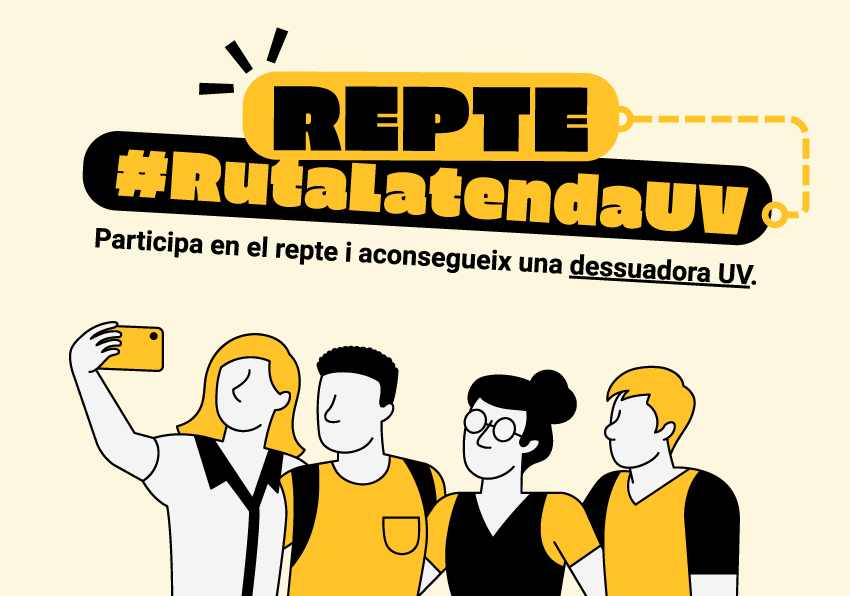



.jpg)
.jpg)
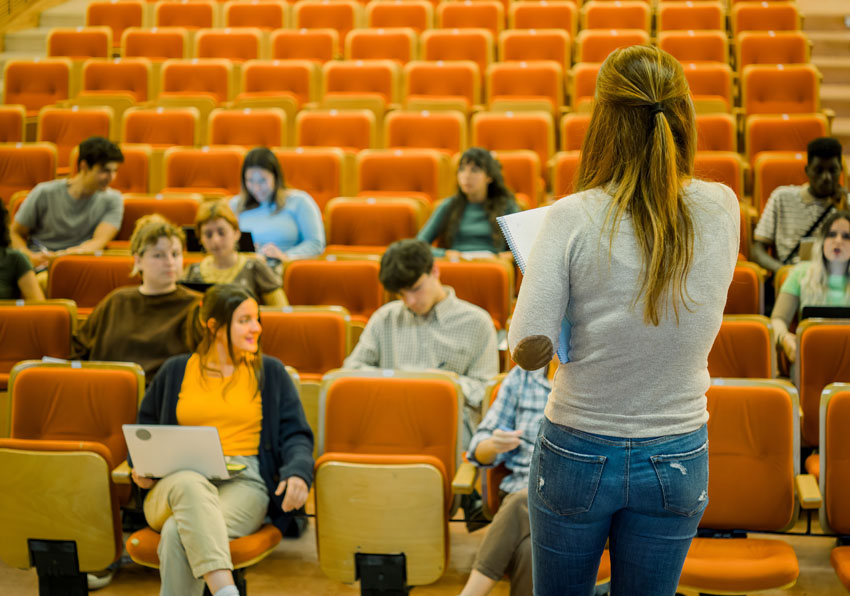
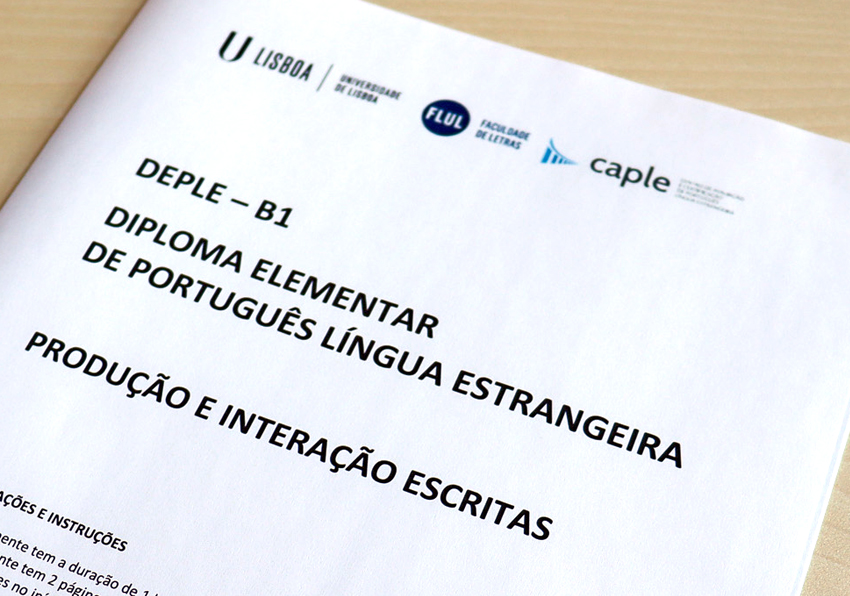
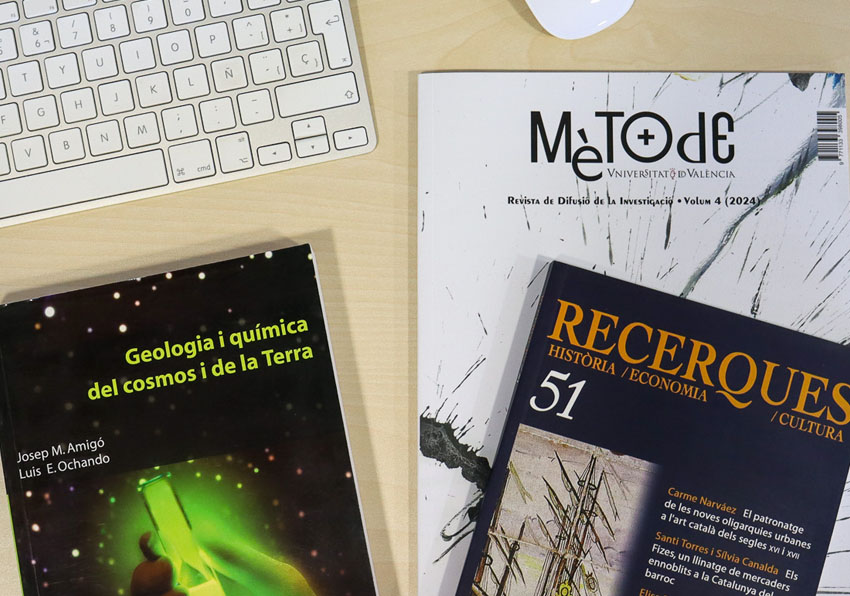
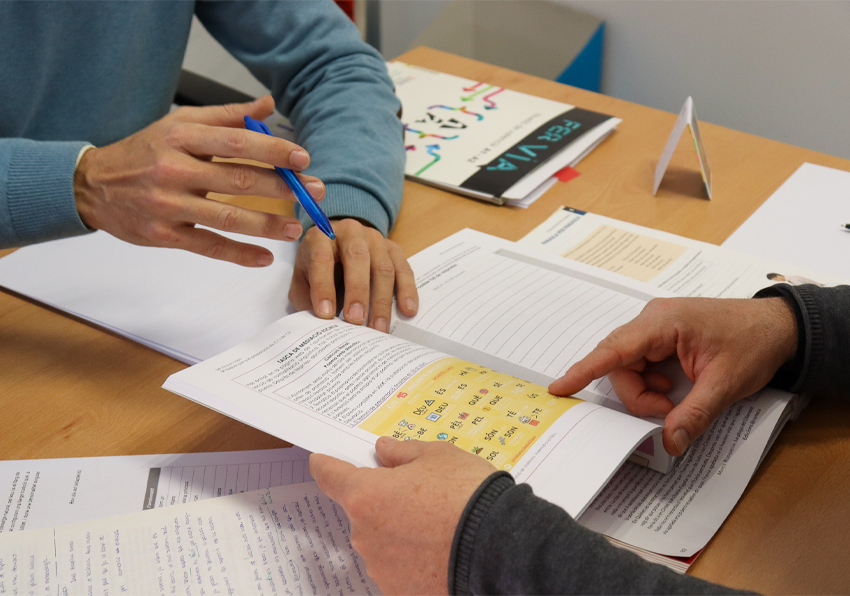
.jpg)
